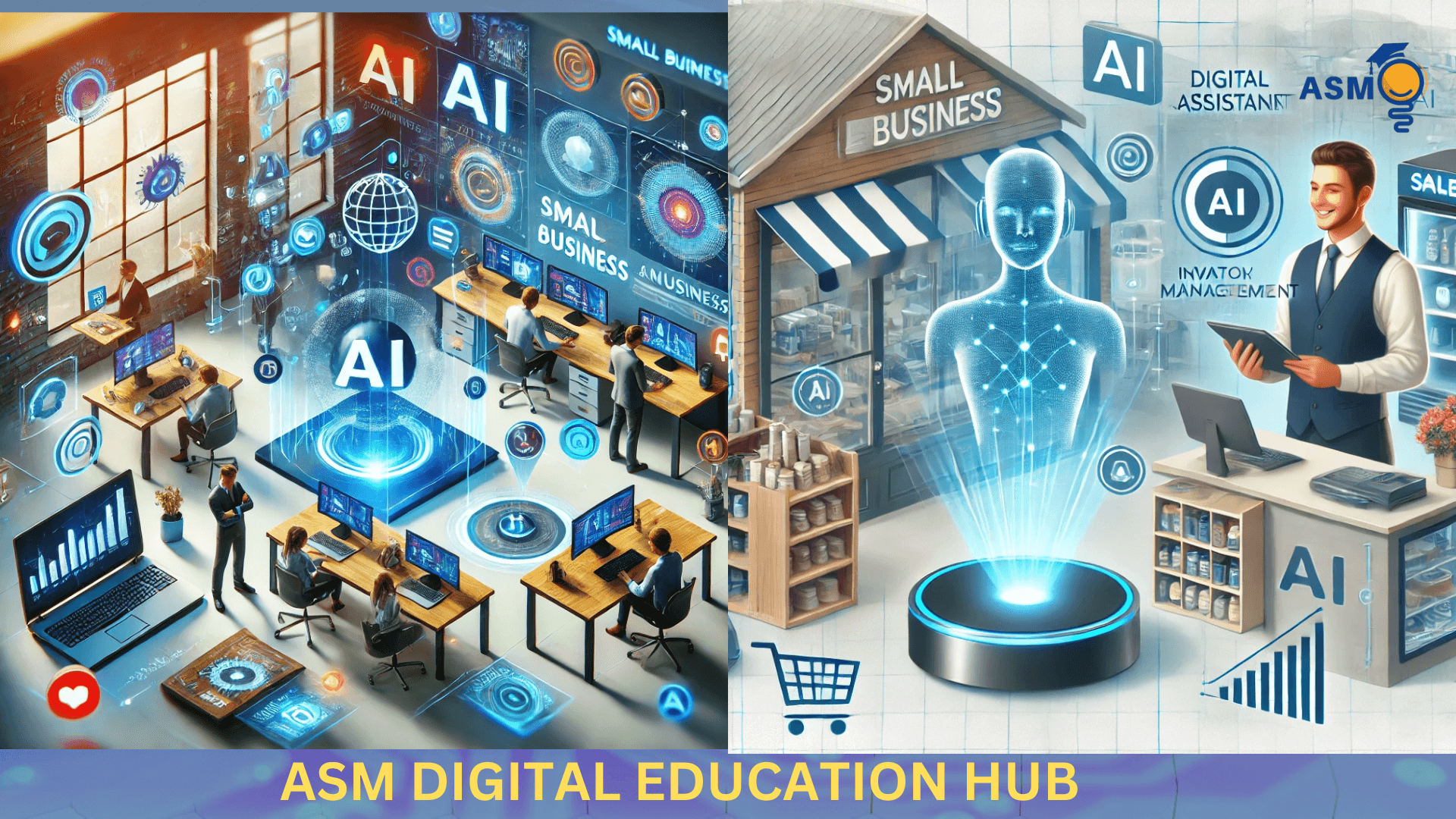In the SMALL BUSINESSES digital age, artificial intelligence (AI) has become a game-changer for businesses, especially small and medium-sized enterprises (SMEs). AI-powered tools can automate routine tasks, provide data-driven insights, and streamline operations, enabling small businesses to compete with larger corporations. This article explores the best AI-powered tools that can help small businesses enhance productivity, improve customer experience, and drive growth.
Why Small Businesses Need AI Tools
Small businesses often operate with limited resources and budgets, making it essential to optimize processes and reduce costs. AI tools provide:
- Automation: Reduce manual effort in repetitive tasks like data entry, email marketing, and scheduling.
- Scalability: Handle increased workloads without significantly increasing costs.
- Personalization: Offer tailored customer experiences based on data analysis.
- Efficiency: Free up time for teams to focus on strategic initiatives.
Top AI-Powered Tools for Small Businesses
1. ChatGPT for Customer Support
AI-powered chatbots, like ChatGPT, can handle customer queries 24/7, reducing response time and improving customer satisfaction. These bots can be trained to answer frequently asked questions, process orders, and even provide personalized product recommendations.
Key Benefits for Small Businesses:
- Automates customer support.
- Enhances user experience with instant responses.
- Reduces operational costs.
2. Grammarly for Content and Communication
Effective communication is critical for any business. Grammarly uses AI to proofread and enhance the quality of written content, ensuring professionalism in emails, marketing materials, and social media posts.
Key Benefits:
- Corrects grammar, spelling, and punctuation errors.
- Provides tone and style suggestions.
- Helps maintain a professional brand image.
Creating eye-catching visuals is easier with Canva. This AI-powered tool offers templates and design suggestions, enabling even non-designers to create professional-quality graphics for social media, presentations, and marketing campaigns.
Key Benefits:
- User-friendly interface.
- Customizable templates.
- Cost-effective solution for small businesses.
4. Hootsuite for Social Media Management
Managing multiple social media accounts can be challenging for small businesses. Hootsuite leverages AI to schedule posts, analyze performance, and provide insights to improve engagement.
Key Benefits:
- Centralized social media management.
- Automated scheduling.
- Detailed analytics to refine strategies.
5. QuickBooks for Accounting and Finance
QuickBooks uses AI to automate bookkeeping and financial management. It helps small businesses track expenses, generate invoices, and prepare tax reports effortlessly.
Key Benefits:
- Simplifies accounting tasks.
- Provides financial insights.
- Ensures compliance with tax regulations.
6. Zapier for Workflow Automation
Zapier connects different apps and automates workflows, saving time and reducing manual errors. For instance, it can automatically send customer data from a CRM to an email marketing platform.
Key Benefits:
- Integrates various tools.
- Automates repetitive tasks.
- Improves efficiency.
7. HubSpot for CRM and Marketing
HubSpot’s AI-powered CRM tool helps small businesses manage customer relationships, track sales pipelines, and execute marketing campaigns. Its analytics feature provides insights to refine strategies.
Key Benefits:
- Centralized customer data management.
- AI-driven marketing automation.
- Real-time performance tracking.
8. Tableau for Data Visualization
Making data-driven decisions is crucial for growth. Tableau uses AI to transform complex datasets into visually appealing dashboards and reports, helping businesses uncover actionable insights.
Key Benefits:
- Interactive data visualizations.
- User-friendly interface.
- Supports informed decision-making.
9. Zoom for Virtual Meetings
Zoom integrates AI to enhance virtual communication. Features like background noise cancellation, real-time transcription, and meeting analytics make it an essential tool for remote work.
Key Benefits:
- Improves remote collaboration.
- Enhances meeting efficiency.
- Supports hybrid work models.
10. Trello for Project Management
Trello uses AI to optimize task management and team collaboration. With customizable boards, businesses can streamline project workflows and improve productivity.
Key Benefits:
- Visual task organization.
- Integrations with other tools.
- Enhances team accountability.
How to Choose the Right AI Tools for Your Business
When selecting AI-powered tools, consider the following factors:
- Business Needs: Identify pain points and choose tools that address specific challenges.
- Budget: Opt for tools that offer scalable pricing plans suitable for small businesses.
- Ease of Use: Select user-friendly tools with minimal learning curves.
- Integration: Ensure compatibility with existing systems and software.
- Customer Support: Check for reliable support to resolve issues quickly.
Future of AI in Small Businesses
AI is expected to play a transformative role in shaping the future of small businesses. From predictive analytics to voice recognition technology, emerging AI innovations will further democratize access to advanced tools and resources. Businesses that adopt AI early will have a competitive edge in their industries.
Conclusion
AI-powered tools are no longer a luxury but a necessity for small businesses aiming to scale operations and stay competitive. By leveraging tools like ChatGPT for customer support, QuickBooks for financial management, and Canva for design, small businesses can optimize processes, improve customer experiences, and drive growth. The key lies in understanding business needs and choosing the right tools that align with goals.
Embrace AI today to transform your small business into a powerhouse of efficiency and innovation!


